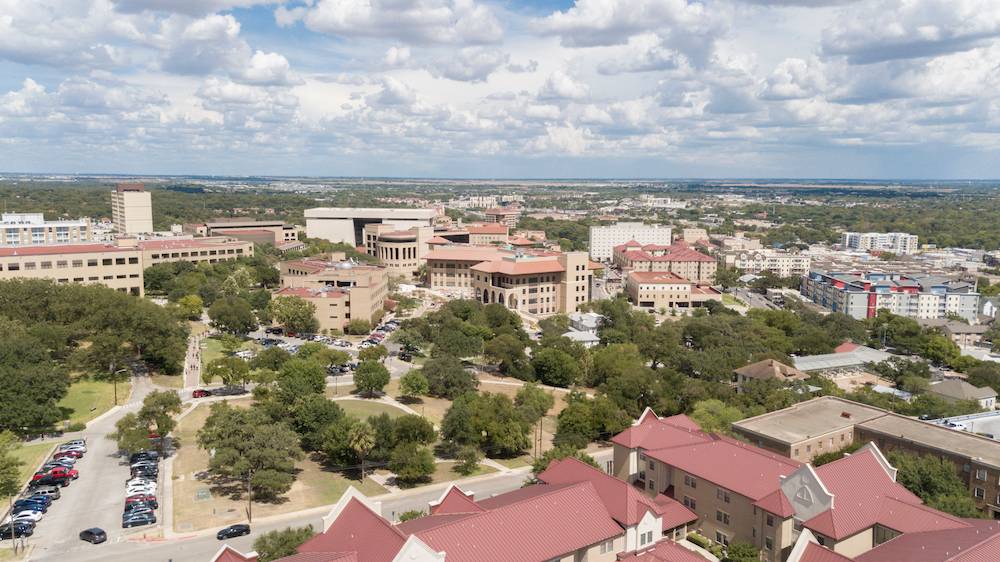Biography and education
Dr. Betancourt serves as Associate Professor and Director, Bachelor of Health Administration (BHA) program in School of Health Administration. He is an experienced Public Health professional in the area of innovative solutions to current and emerging public health challenges facing our Nation and our world. He is a retired U.S. Army Medical Service Corps Officer and Aviator (qualified on the UH-1 'Huey' and UH-60A 'Blackhawk' helicopters) with over 30 years of supervisory and management experience in the public health arena, specifically in the areas of leadership and operations, contracts and procurement, logistics, personnel administration and budgeting. Dr. Betancourt is an adaptive and innovative leader with the ability to successfully plan, coordinate and execute a multitude of wholly disassociated programs and attain successful outcomes in all instances.
He previously served as the primary program manager responsible for the design, development and implementation of a comprehensive Behavioral Health program utilizing tele-medicine/ tele-health technology for use by Soldiers and Family Members across the Army. He served as the strategic plans and design officer for an infrastructure which utilizes unique technology to increase access to Soldiers and Family Members suffering from Post-Traumatic Stress Disorder, Traumatic Brain Injury and other behavioral health challenges.
Dr. Betancourt coordinated and authored the current draft of the comprehensive Concept of Operations for the Army Tele-Behavioral Health Program depicting in detail how this technology is to be used by Active Duty, USAR, NGB, Family Members, Family Advocacy Programs and Substance Abuse Programs.
Additionally, he completed an analytical study assessing a number of training modalities aimed at converting approximately 1,200 US Army Flight Medics to NR-EMT-Paramedic certification. Numerous lessons-learned from Operations Iraqi Freedom and Enduring Freedom (Iraq and Afghanistan) highlighted the need to increase the current skill-level of US Army Flight Medics. His comprehensive review recommended an innovative, hybrid-approach to delivering this critical training encompassing both a centralized training model, as well as a regional training modality.
Dr. Betancourt served on an analytical study team which built an operational cost-model for the Joint DoD/VA Integrated Electronic Health Record (iEHR) Interagency Planning Office (IPO). This model is aiding the establishment of one, comprehensive and longitudinal health record for Service members from initial entry into Service, through Veteran status. Dr. Betancourt is confident that a ‘collective synergy’ can be realized at Texas State University from the intersection of the Military Healthcare System, Academia, and Industry: specifically in the areas of military medical research & development, military medical training and education (public health), and the treatment of Veterans and their Families.
EDUCATION AND TRAINING
Dr.PH, International Public Health, George Washington University 2003
Dissertation: An Evaluation of the Electronic Syndromic Surveillance for the Early Notification of Community-based Epidemics (ESSENCE).
M.S., Strategic Studies, U.S. Army War College 2006
Thesis: “Building the Afghanistan National Army’s Defense Health Sector: A Case Study in Reconstruction and Development.”
M.S., Strategic Intelligence Defense Intelligence College, Bolling Air Force Base 1992
M.S., Management, Troy State University, Fort Benning, Georgia 1990
B.S., Psychology, University of Florida, Gainesville 1985
U.S. Army War College, Distance Education Program May 2004 – May 2006
Defense Strategy Course, Washington, DC August 2001
Post Graduate Intelligence Program, Washington, DC August 1991 – June 1992
Command and General Staff College, Fort Leavenworth, Kansas August 1992
Combined Arms Services Staff School, Fort Leavenworth, Kansas March 1991 – June 1991 Aviation Officer Safety Course, Fort Rucker, Alabama February 1991
Medical Officer Leadership Course, Fort Sam Houston, Texas June 1985 – September 1985
He previously served as the primary program manager responsible for the design, development and implementation of a comprehensive Behavioral Health program utilizing tele-medicine/ tele-health technology for use by Soldiers and Family Members across the Army. He served as the strategic plans and design officer for an infrastructure which utilizes unique technology to increase access to Soldiers and Family Members suffering from Post-Traumatic Stress Disorder, Traumatic Brain Injury and other behavioral health challenges.
Dr. Betancourt coordinated and authored the current draft of the comprehensive Concept of Operations for the Army Tele-Behavioral Health Program depicting in detail how this technology is to be used by Active Duty, USAR, NGB, Family Members, Family Advocacy Programs and Substance Abuse Programs.
Additionally, he completed an analytical study assessing a number of training modalities aimed at converting approximately 1,200 US Army Flight Medics to NR-EMT-Paramedic certification. Numerous lessons-learned from Operations Iraqi Freedom and Enduring Freedom (Iraq and Afghanistan) highlighted the need to increase the current skill-level of US Army Flight Medics. His comprehensive review recommended an innovative, hybrid-approach to delivering this critical training encompassing both a centralized training model, as well as a regional training modality.
Dr. Betancourt served on an analytical study team which built an operational cost-model for the Joint DoD/VA Integrated Electronic Health Record (iEHR) Interagency Planning Office (IPO). This model is aiding the establishment of one, comprehensive and longitudinal health record for Service members from initial entry into Service, through Veteran status. Dr. Betancourt is confident that a ‘collective synergy’ can be realized at Texas State University from the intersection of the Military Healthcare System, Academia, and Industry: specifically in the areas of military medical research & development, military medical training and education (public health), and the treatment of Veterans and their Families.
EDUCATION AND TRAINING
Dr.PH, International Public Health, George Washington University 2003
Dissertation: An Evaluation of the Electronic Syndromic Surveillance for the Early Notification of Community-based Epidemics (ESSENCE).
M.S., Strategic Studies, U.S. Army War College 2006
Thesis: “Building the Afghanistan National Army’s Defense Health Sector: A Case Study in Reconstruction and Development.”
M.S., Strategic Intelligence Defense Intelligence College, Bolling Air Force Base 1992
M.S., Management, Troy State University, Fort Benning, Georgia 1990
B.S., Psychology, University of Florida, Gainesville 1985
U.S. Army War College, Distance Education Program May 2004 – May 2006
Defense Strategy Course, Washington, DC August 2001
Post Graduate Intelligence Program, Washington, DC August 1991 – June 1992
Command and General Staff College, Fort Leavenworth, Kansas August 1992
Combined Arms Services Staff School, Fort Leavenworth, Kansas March 1991 – June 1991 Aviation Officer Safety Course, Fort Rucker, Alabama February 1991
Medical Officer Leadership Course, Fort Sam Houston, Texas June 1985 – September 1985
Teaching Interests
Research Interests
Featured grants
- Beauvais, Bradley Michael (Principal), Mileski, Michael (Co-Principal), Ramamonjiarivelo, Zo H (Co-Principal), Lee, Kimberly Ann (Supporting), Betancourt, Jose Alberto (Supporting), Pradhan, Rohit (Supporting). The Association Between Facility Affiliations and Revenue Generation in Skilled Nursing Facilities – An Exploratory Study, Williamson Fund, Texas State University, $2500. (Submitted: June 2023, Funded: June 2023 - August 2023). Grant.
- Stigler Granados, Paula Elaine (Principal), Percent Contribution: %9, Betancourt, Jose Alberto (Co-Principal), Percent Contribution: %6, Rohde, Rodney E (Co-Principal), Percent Contribution: %4, Pacheco, Gerardo Jesus (Co-Principal), Percent Contribution: %3, Fulton, Lawrence V (Co-Principal), Percent Contribution: %2. Effective Surveillance of Chagas Disease for US Military Readiness along South West US Mexico Border Ports of Entry, DoD Global Health Engagement Research Initiative (GHERI) Award, Federal, $705755.76. (Funded: October 2020 - September 2022). Grant.
- Betancourt, Jose Alberto (Co-Principal), Percent Contribution: %50, Stigler Granados, Paula Elaine (Co-Principal), Percent Contribution: %50. Chagas Disease Prevalence and Associated Risk Factors Among Texas State University Students, Staff and Faculty, Texas State University Research Enhancement Committee and Faculty Senate, Texas State University, $15966.00. (Funded: February 1, 2019 - Present). Grant.

Featured scholarly/creative works
- Schulz, T., Hammill, T., Zapata, T., Betancourt, J. A., & Edwards-Stewart, A. (2023). The Design and Application of a Health Behavioral Change (HBC) Roadmap. Military Medicine, Volume 188(08 November 2023), 621–628. Retrieved from https://academic.oup.com/milmed/article/188/Supplement_6/621/7388299
- Betancourt, J. A., Dolezel, D. M., Shanmugam, R., Pacheco, G. J., Stigler Granados, P. E., & Fulton, L. V. (2023). The Health Status of the US Veterans: A Longitudinal Analysis of Surveillance Data Prior to and during the COVID-19 Pandemic. Healthcare, 11(14), 1–14. https://doi.org/10.3390/healthcare11142049
- Beauvais, B. M., Ramamonjiarivelo, Z. H., Betancourt, J. A., Cruz, J. E., & Fulton, L. V. (2023). The Predictive Factors of Hospital Bankruptcy. Healthcare, 11(2). https://doi.org/https://doi.org/10.3390/healthcare11020165
- Betancourt, J. A., Rosenberg, M. A., Zevallos, A., Brown, J. R., & Mileski, M. (2020). The Impact of COVID-19 on Telemedicine Utilization Across Multiple Service Lines. MDPI Healthcare, 8(380), 24. https://doi.org/10.3390/healthcare8040380
- Betancourt, J. A., Stigler-Granados, P. E., Pacheco, G. J., Shanmugam, R., Kruse, C. S., & Fulton, L. V. (2020). Obesity and Morbidity Risk in the U.S. Veteran. MDPI - Healthcare 2020, 8(3), 191–204. https://doi.org/doi:10.3390/healthcare8030191
Featured awards
- Award / Honor Recipient: Excellence in Teaching Award 2024, College of Health Professions. August 25, 2024 - May 10, 2025
- Award / Honor Recipient: College of Health Professions 2021 College Achievement Award for Excellence in Teaching, Texas State University. August 23, 2021
- Award / Honor Recipient: Texas State University Alpha Chi National College Honor Society Favorite Professor Award, Texas State University Alpha Chi National College Honor Society. November 15, 2020
- Award / Honor Recipient: Department of Defense Bronze Star Medal, US Department of Defense. January 1, 2005 - May 15, 2005

Featured service activities
- Member
Search Committee, Director, School of Health Administration (SOHA)
- Member
School of Nursing Personnel Committee
- Member
Department of Medical Laboratory Sciences (MLS)
- Board Member
Hays County Community Health Assessment Steering Committee
- Member
Alpha Eta Honor Society
- Other
School of Health Administration, College of Health Professions

